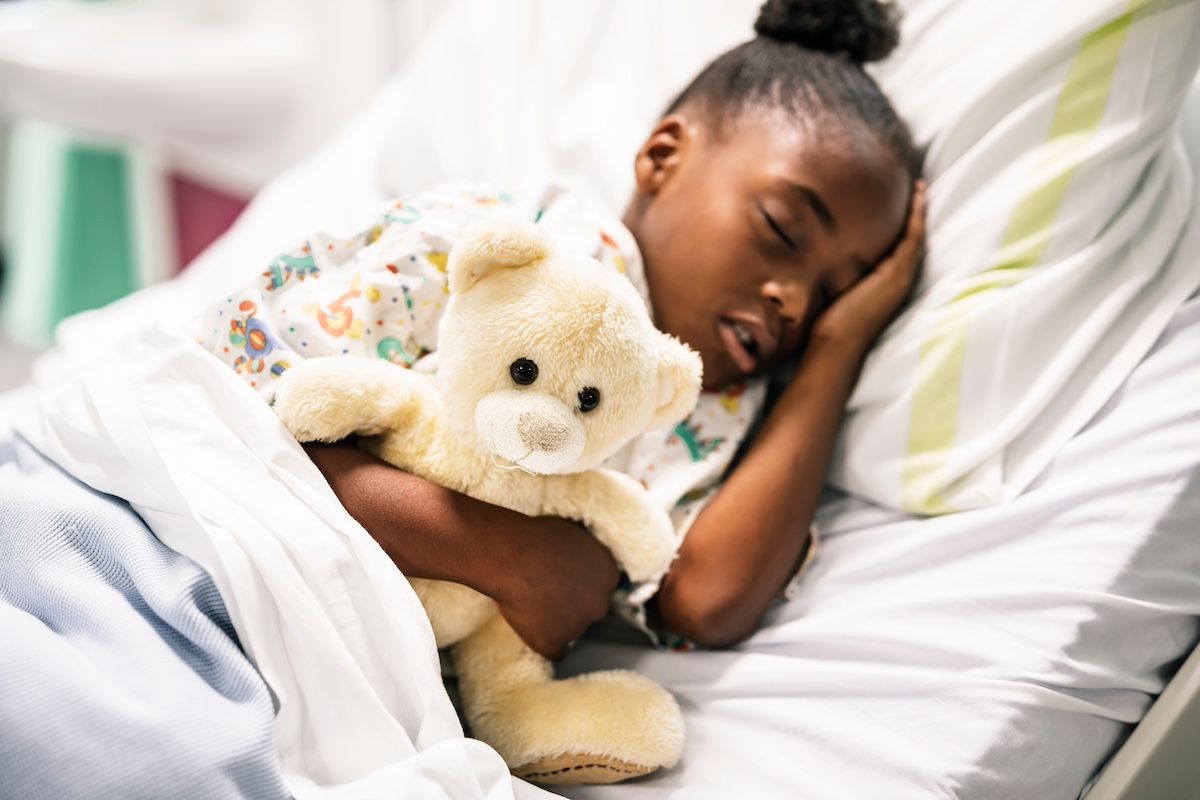- Center on Health Equity & Access
- Clinical
- Health Care Cost
- Health Care Delivery
- Insurance
- Policy
- Technology
- Value-Based Care
How COVID-19 Has Impacted RSV Epidemiology Among Children in a Hospital Setting
Respiratory syncytial virus (RSV) hospitalization–related features may help inform prevention approaches among children with the infection, according to one study.
In a study that evaluated the epidemiological impact of the COVID-19 pandemic on respiratory syncytial virus (RSV) infections in children, researchers identified a significant rise in RSV hospitalizations in post-pandemic seasons compared with pre-pandemic periods.

These findings underscore the importance of targeted preventative strategies to help mitigate the burden of RSV infection among young children.
The population-based study, published in Frontiers in Pharmacology, aimed to characterize RSV epidemiology among children hospitalized due to RSV infection before and the COVID-19 pandemic to identify pediatric patients at a higher risk of severe illness and hospitalization and inform decision-making.1
The study was based on a patient population of children aged 0 to 6 years who were hospitalized for RSV infection at Meyer Children’s Hospital in Florence, Italy from September 2014 to March 2023. The researchers obtained records of seasonal trends before and after the pandemic, including age distribution, intensive care unit (ICU) admission and co-infections, comorbidities, and prematurity. Additionally, predictions on the number of hospitalizations that were avoided due to the implementation of different preventative strategies were provided.
Data from a total of 1262 children hospitalized for RSV infection were identified. About 70% of cases were for children under 1 year of age, with the majority (69.9%) of children being under 3 months of age.
In the post-pandemic seasons, the researchers observed a 317% increase in the number of hospitalizations, with a significant increase in older children compared with the pre-pandemic seasons. Additionally, ICU support was required for 22% of children, the majority of whom were under 3 months of age. Nearly 16% of hospitalized children were born preterm and only 27% of children had prior comorbidities. Furthermore, the rate of comorbidities among RSV hospitalized children increased with age.
The researchers noted that nirsevimab prophylaxis could have prevented more than 46% of hospitalizations in this patient cohort. Moreover, the researchers estimated that a preventative strategy also accounting for children aged 7 months to 6 years of age with co-existing comorbidities would increase that rate above 57%.
Nirsevimab (Beyfortus), is a long-acting humanized monoclonal antibody that has been recently granted fast track designation by the FDA for passive immunization of infants up to 24 months of age during their first RSV season.2
The findings led the researchers to believe that an immunization campaign targeting patients with comorbidities should be integrated into their follow-up care, which may help eliminate financial and non-financial costs of additional access to health care facilities.1 Additionally, the researchers believe combined preventative strategies should include both passive and active immunization within this patient population.
“Our study reveals that the primary burden of the infection still affects children under 1 year of age, with infants in their first 3 months being the most susceptible,” wrote the researchers. “However, the circulation of the virus among cohorts of older children may negatively impact the containment of the infection at a population level, emphasizing the need for more comprehensive preventive strategies.”
Reference
1. Lodi L, Catamerò F, Voarino M, et al. Epidemiology of respiratory syncytial virus in hospitalized children over a 9-year period and preventive strategy impact. Front Pharmacol. 2024;15:1381107. Published 2024 May 22. doi:10.3389/fphar.2024.1381107
2. FDA approves new drug to prevent RSV in babies and toddlers. News release. July 17, 2023. Accessed June 7, 2024. https://www.fda.gov/news-events/press-announcements/fda-approves-new-drug-prevent-rsv-babies-and-toddlers
The Breakdown: Breast Cancer Research Awareness Day
August 19th 2025Breast cancer is the second most common cancer among women and the second leading cause of cancer-related deaths among women in the US. In light of Breast Cancer Research Awareness Day, The American Journal of Managed Care® breaks down the most recent advancements in breast cancer prevention, screening, and therapies.
Listen
Politics vs Science: The Future of US Public Health
February 4th 2025On this episode of Managed Care Cast, we speak with Perry N. Halkitis, PhD, MS, MPH, dean of the Rutgers School of Public Health, on the public health implications of the US withdrawal from the World Health Organization and the role of public health leaders in advocating for science and health.
Listen
